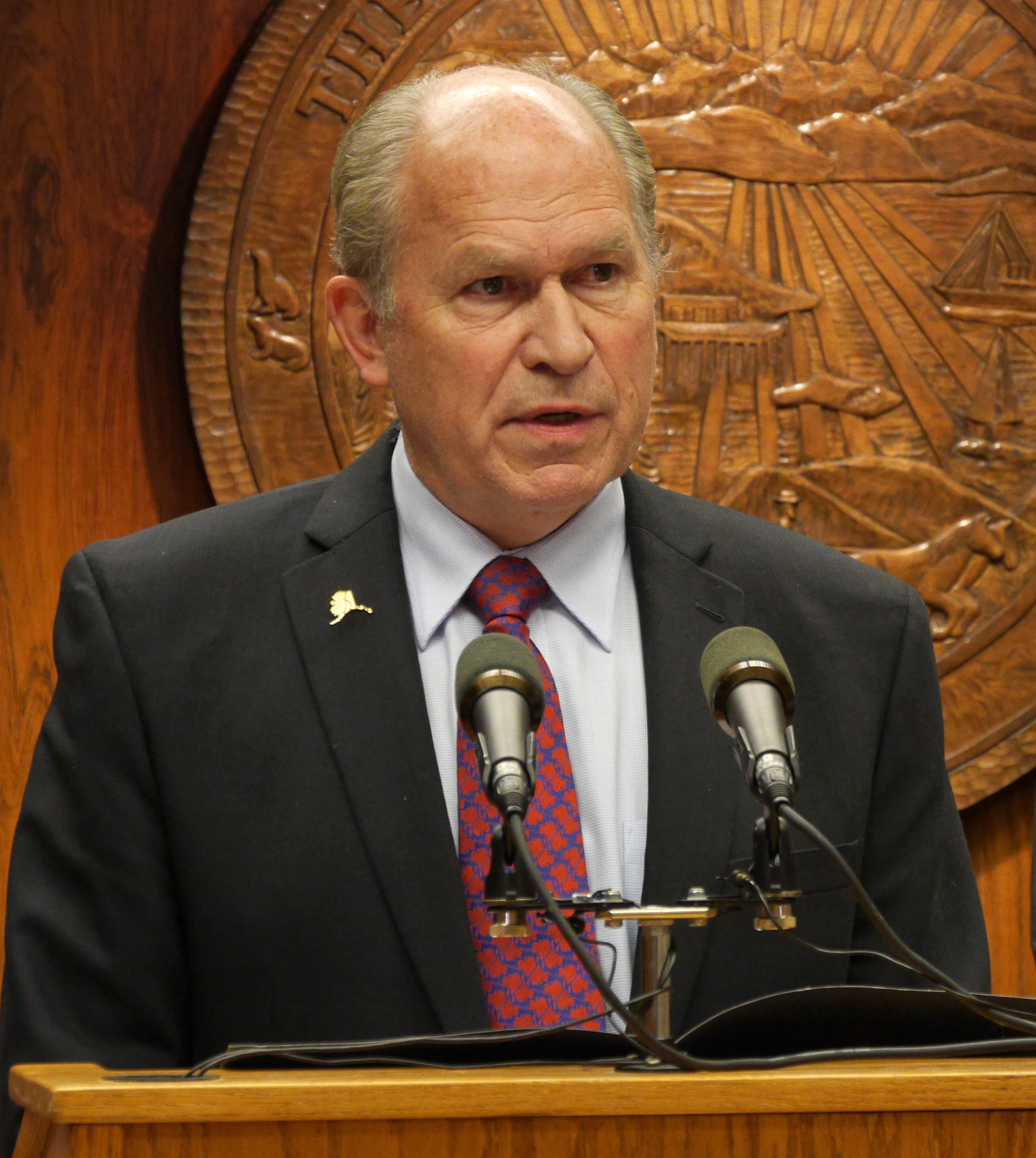
Walker’s proposed spending plan totals $10 billion for the coming year, but much of that is federal funding. The spending plan includes $4.3 billion for the part of the budget directly controlled by the Legislature.
The amount of money raised through taxes and fees is projected to increase by $177.4 million. But that still leaves a large gap that Walker would like to close. State Revenue Commissioner Randall Hoffbeck said Walker decided to leave a $890 million gap between state spending and the taxes and fees it collects because he wants to work with the legislature.
“I think it really is a recognition that the administration and the legislature are in this together,” Hoffbeck said. “Last year, we proposed a slate of bills that would get us to the finish line. Some were received more openly than others. And so what we felt like is that this year we would go in with a little bit more of an open-ended plan.”
Walker wants to close most of the budget gap with legislation that would draw $1.87 billion from Permanent Fund earnings, and keep dividends at $1,000 per person. That’s about the same level residents received this year, after Walker vetoed half the dividend funding.
Walker is proposing the same Permanent Fund bill the Senate passed in the summer — one the House didn’t act on. Hoffbeck said that approach may save time and effort.
“I think it’s more pragmatic than anything else,” Hoffbeck said. “The Senate has already weighed in on this and were willing to pass this particular version of the plan. So rather than trying to start all over again, we already got half the battle won.”
The incoming House majority caucus will be different. This year, the majority was led by Republicans. In the coming year, it will be predominantly Democratic.
The proposed budget includes a $123 million cut in spending by state agencies. The cuts are offset by higher payments on state debt, oil and gas tax credits and capital projects, leaving the total budget reduction at $28 million.
State Budget Director Pat Pitney said preparing the budget was difficult.
“We’re trying to find savings out of a very small segment,” Pitney said. “When you have the statutory required programs, whether it be oil and gas tax credits, whether it’s Medicaid, whether it’s Base Student Allocation. All of these are set by statute.”
Further budget changes could include introducing a personal income tax and/or a sales tax or another tax on consumption.
Pitney said the legislative changes made this year could phase in new money over a year or two.
Walker is focused on adding a personal income tax, but Hoffbeck said some legislators are working on a statewide consumption tax. He said this could include a value added tax, in which taxes are applied at each stage of production of a good or service. Or it could be a gross receipts tax, which would be applied to a business’s total sales.
The budget includes the minimum amount of oil and gas tax credits under state law. That means nearly $1 billion in credits that energy companies are due wouldn’t be paid out in the coming year. Pitney said Walker would support making those payments if the legislature makes changes to the oil and gas tax system that Walker proposed last year.
There was one tax increase Walker’s plan did spell out – raising the motor fuel tax from the current level of 8 cents per gallon to 16 cents per gallon in July, and adding another 8 cents the following year. Hoffbeck said it’s a prudent approach.
“It would ultimately top out at 24 cents a gallon, which is about the national average motor fuel tax,” Hoffbeck said.
Walker’s proposal received a mixed response. Eagle River Republican Senator Anna MacKinnon said she’s disappointed the administration didn’t “take their job more seriously and identify areas that should be cut, trimmed or eliminated.”
Democratic House Speaker Bryce Edgmon said there is no question Walker is willing to address the state’s fiscal challenge head-on and he said the new House majority coalition would give his proposals a fair hearing.
Andrew Kitchenman is the state government and politics reporter for Alaska Public Media and KTOO in Juneau. Reach him at akitchenman@alaskapublic.org.




